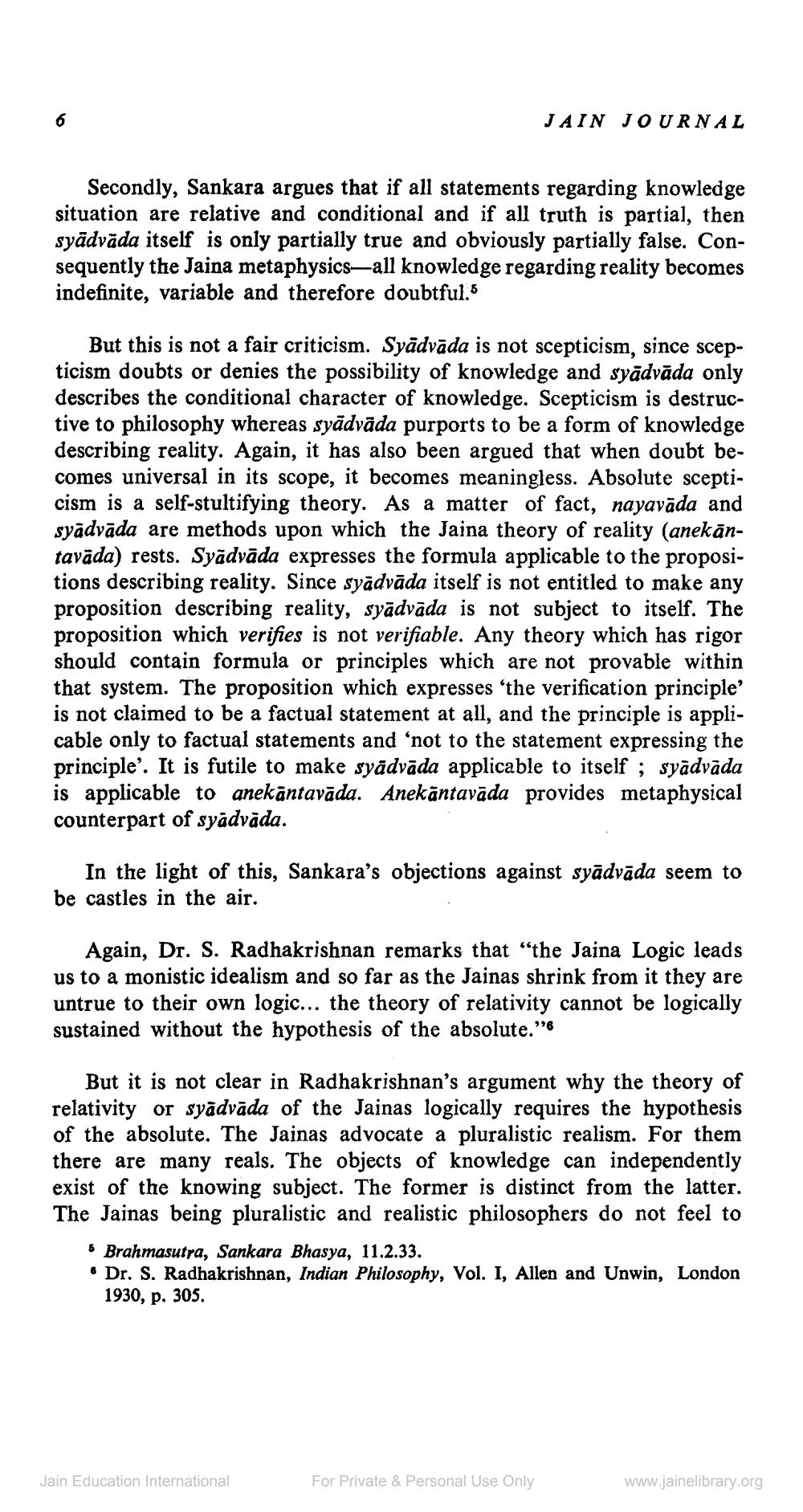________________
JAIN JOURNAL
Secondly, Sankara argues that if all statements regarding knowledge situation are relative and conditional and if all truth is partial, then syādvāda itself is only partially true and obviously partially false. Consequently the Jaina metaphysics—all knowledge regarding reality becomes indefinite, variable and therefore doubtful.5
But this is not a fair criticism. Syādvāda is not scepticism, since scepticism doubts or denies the possibility of knowledge and syādvāda only describes the conditional character of knowledge. Scepticism is destructive to philosophy whereas syādvāda purports to be a form of knowledge describing reality. Again, it has also been argued that when doubt becomes universal in its scope, it becomes meaningless. Absolute scepticism is a self-stultifying theory. As a matter of fact, nayavāda and syadvāda are methods upon which the Jaina theory of reality (anekāntavāda) rests. Syādvāda expresses the formula applicable to the propositions describing reality. Since syādvāda itself is not entitled to make any proposition describing reality, syādvāda is not subject to itself. The proposition which verifies is not verifiable. Any theory which has rigor should contain formula or principles which are not provable within that system. The proposition which expresses 'the verification principle' is not claimed to be a factual statement at all, and the principle is applicable only to factual statements and ‘not to the statement expressing the principle'. It is futile to make syādvāda applicable to itself ; syādvada is applicable to anekantavāda. Anekantavāda provides metaphysical counterpart of syādvāda.
In the light of this, Sankara's objections against syādvāda seem to be castles in the air.
Again, Dr. S. Radhakrishnan remarks that "the Jaina Logic leads us to a monistic idealism and so far as the Jainas shrink from it they are untrue to their own logic... the theory of relativity cannot be logically sustained without the hypothesis of the absolute."
But it is not clear in Radhakrishnan's argument why the theory of relativity or syādvāda of the Jainas logically requires the hypothesis of the absolute. The Jainas advocate a pluralistic realism. For them there are many reals. The objects of knowledge can independently exist of the knowing subject. The former is distinct from the latter. The Jainas being pluralistic and realistic philosophers do not feel to
* Brahmasutra, Sankara Bhasya, 11.2.33. . Dr. S. Radhakrishnan, Indian Philosophy, Vol. I, Allen and Unwin, London
1930, p. 305.
Jain Education International
For Private & Personal Use Only
www.jainelibrary.org




